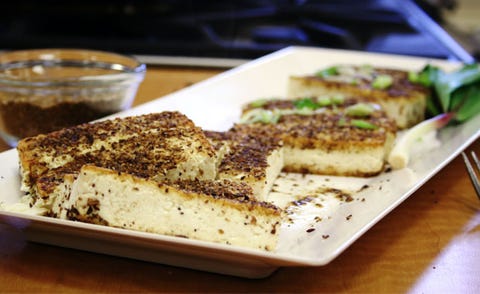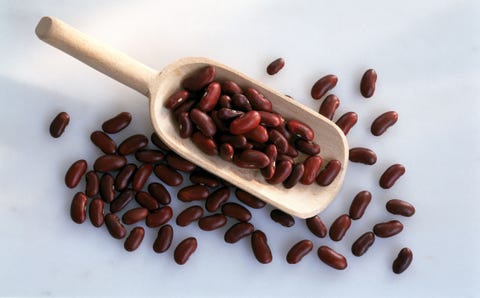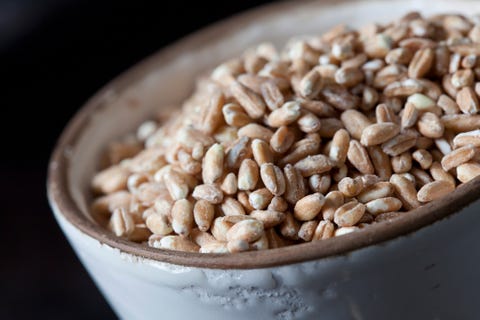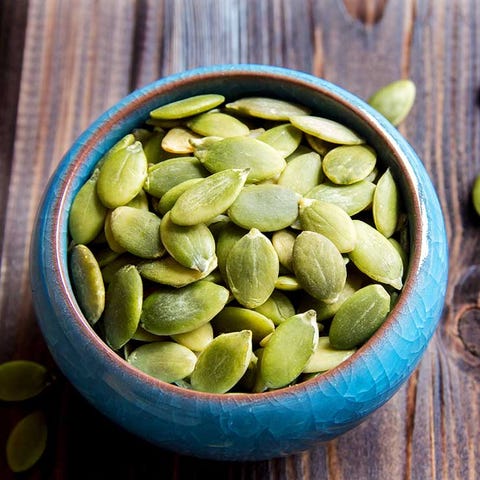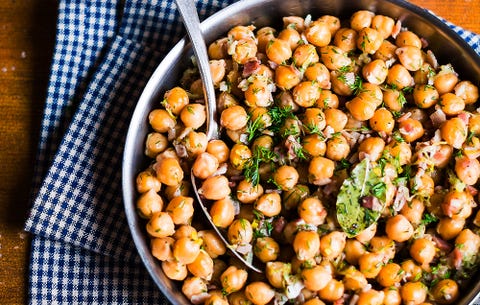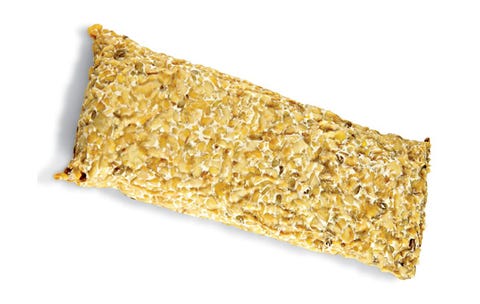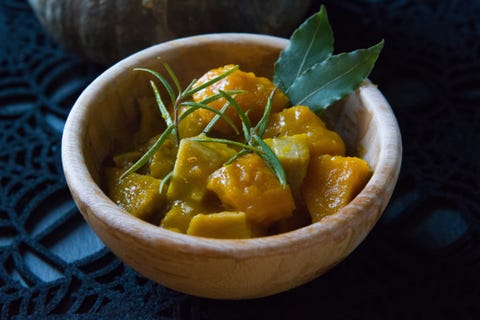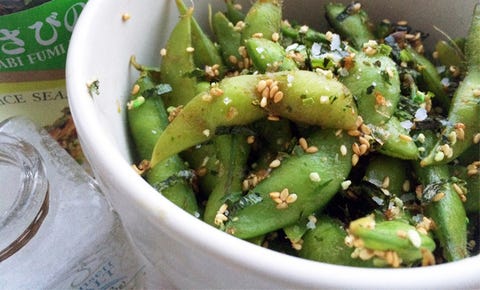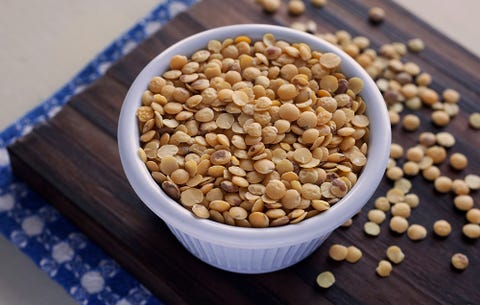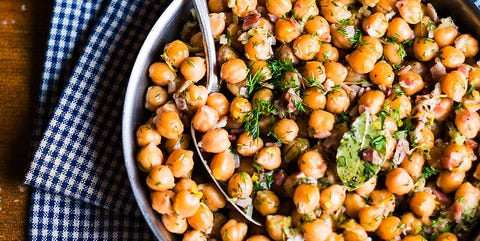
If you’ve ever considered going vegan, you’re probably worried about whether you’d get enough protein, which is essential to staying healthy and nourishing your body. The truth is, that’s a valid concern. Because protein is more readily available in animal products, it can be tough to meet your daily requirements when you’re on a plant-based diet. And “men need 50-60 grams of protein a day on average, more if they are active,” says Maggie Moon, MS, RD.
Fortunately, there are a handful of foods that serve as solid protein sources for vegetarians and vegans. (Moon defines a solid protein source as an item that has 10 grams of protein per serving or more.) Even if they don’t pack quite as much of a punch as, say, a plate of steak and eggs, these foods are a good place to get started.
Gallery Stock
Tofu is an excellent plant-based, high-protein option that’s used as a staple in many meatless dishes. At 22 grams of protein per ½ cup, tofu is a great addition to stir-fries and salads. Plus, it has a “meaty” texture that is great for grilling and pan-sears.
Look for firm tofu at the grocery store: “Just like strained yogurts, the firmer the tofu, the more protein it’ll pack because it has lower water content” says Moon. An added bonus: tofu is an excellent non-dairy source of calcium.
Gallery Stock
There are 21 grams of protein in one cup of cooked beans, so they’ll help fill you up and build muscle. What’s more, beans will boost your digestion “since they’re packed with fiber,” Moon says. Pair it with rice, hummus, or whole-grain bread for a complete meatless meal.
Getty ImagesWestend61
At 11 grams of protein per cup, spelt offers less protein than a serving of tofu or beans. But it’s an excellent and underused grain option. “Putting a grain on a high-protein foods list may seem unusual, but spelt is surprising like that. It’s higher in protein than quinoa, and it is also an outstanding source of iron (20% of daily value) and fiber (30% of daily value),” says Moon, although it is lower than a serving of tofu or beans. Spelt stays nicely al dente when cooked and adds a nutty chewiness to grain salads and soups.
Getty Images
At 25 grams of protein per cup, pistachios make for an excellent high-protein snack on the go, says Ashley Holmes Roth, a registered dietitian at Common Threads. “You can also make use them for a number of sweet and savory recipes,” she says, like this sweet potato coconut curry.
oksana mizina/shutterstock
Pumpkin seeds contain 12 grams of protein per cup, and they’re an excellent source of fiber as well. “There are infinite ways to prepare pumpkin seeds, such as roasting them, sprinkling some on top of a parfait or incorporating them into a granola mix,” Roth says. (Check out some ideas for roasted pumpkin seed mixes here.)
Getty Images
Chickpeas contain 9 grams of protein per ¾-cup serving and are one of the most versatile plant-based protein sources out there. “One great way to eat chickpeas is to add them to a kale salad; you’ll be increasing your protein and vitamin intake because the leafy greens contain vitamins A, C, E, and K,” says Roth.“Season up your chickpeas with your favorite spices and a little oil and then roast at 400F until crispy to make a great substitute for croutons.”
You can also use chickpea flour, says Moon, which “can be added into falafels or used to help bind onion fritters (aka pakoras).”
Gallery Stock
For a mere 3 ounces of tempeh, a fermented soy product and popular plant-based protein source, you’re getting 16 grams of protein to fill you up. “Not only is tempeh a plant-based source of protein, but the fermentation processes creates probiotics,” says Natalie Rizzo, MS, RD, which is great for your gut health and digestion, too. Try this mouth-watering vegan BBQ tempeh bowl.
Simone Soldà / EyeEm
This vegan soy-based protein has a meaty texture that’s reminscent of beef or chicken, says Rizzo. “It’s definitely an acquired taste, but it can be a good protein for those who miss the taste of meat,” she explains. Plus, 1/3 of a cup of seitan has 21 grams of protein, so a little goes a long way.
Gallery Stock
Your favorite sushi appetizer is actually a fantastic source of protein. “Edamame is a tasty source of plant-based protein, with 1 cup containing 17 grams,” says Lauren Harris-Pincus, MS, RDN, author of The Protein-Packed Breakfast Club. Add edamame to salads, stir-fry dishes, pasta, grain bowls, and soups, she says.
Getty Images
One cup of cooked lentils has 18 grams of protein. “Lentils have a nice bite, so they can serve as the grain and protein in most of your dishes,” says Rizzo. What’s more, thanks to the texture, lentils make a great substitute in dishes that would usually contain meat, like meatballs, lasagna, or a hearty stew.
Source: Read Full Article
